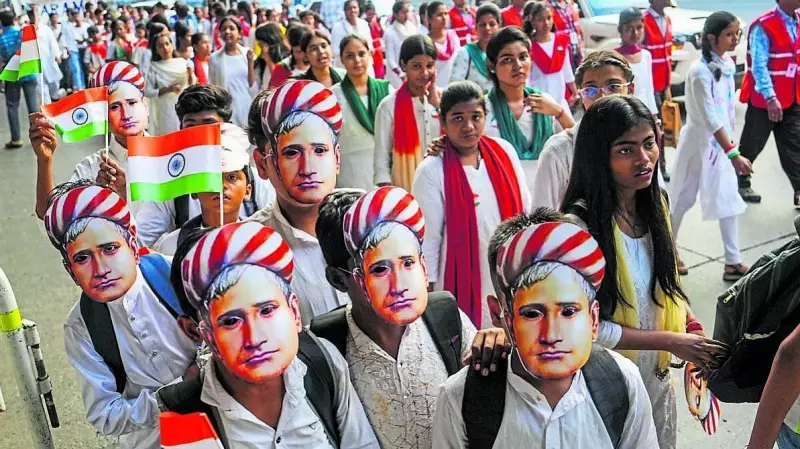
Prime Minister Narendra Modi has recently brought the national song, Vande Mataram, back into the center of political discourse. This renewed focus, however, overlooks the hymn's intricate and often contentious historical background, raising concerns about the potential re-emergence of old ideological and religious fractures in the country.
The Historical Weight of Vande Mataram
The song Vande Mataram holds a revered place in India's struggle for independence. Composed by Bankim Chandra Chattopadhyay, it became a powerful battle cry against British colonial rule. Despite its patriotic status, the song's history is not without controversy. Certain passages within the original text have been a point of debate for decades, with some communities interpreting them as having religious connotations that make universal acceptance challenging.
This complex legacy has often been sidelined in modern political narratives. The author Nilanjan Mukhopadhyay, in his analysis published on 16 November 2025, argues that revisiting the symbol without acknowledging its full context is a risky endeavor. By presenting a simplified version of its past, the current political pitch risks alienating segments of the population and reopening old wounds.
Political Implications and Social Divisions
The government's emphasis on Vande Mataram is more than a cultural revival; it is a significant political statement. Supporters view it as a necessary affirmation of national pride and cultural identity. They see the promotion of the song as a unifying force, strengthening the fabric of the nation.
Critics, however, fear a different outcome. They warn that this top-down promotion could deepen existing societal cleavages. The debate is no longer just about a song's lyrics but about what symbols define the modern Indian identity and who gets to decide. The move is seen by some as part of a larger ideological project that could marginalize minority communities and redefine secularism in India.
The Road Ahead: Unity or Discord?
The renewed focus on Vande Mataram places a complex historical artifact at the heart of contemporary politics. The central question remains whether this will foster a stronger, unified national spirit or inadvertently amplify divisions. The outcome hinges on how the narrative is shaped and whether there is space for an inclusive dialogue that respects the song's entire history, not just select parts of it.
As India continues to navigate its path, the conversation around symbols like Vande Mataram serves as a mirror to the nation's evolving identity. The choices made today regarding its interpretation and promotion will have lasting consequences for the country's social harmony and political future.





